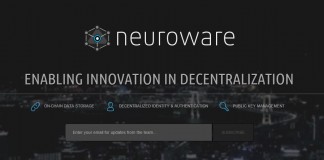Blockchain technology has become the focus of attention of some of the world’s largest financial institutions with Indian banks being no exception.
Banks such as Axis Bank Ltd. are vigorously looking at blockchain technology to streamline processes.
“The biggest thing in financial and accounting is ledger—keeping track of debit and credit,” Amit Sethi, chief information officer, Axis Bank, told Livemint in an interview earlier this week. “Also, in case of forex, the back office of each bank needs to speak to the back office of the other bank. Blockchain has immense potential to eliminate back office in banking, especially for trade finance.”
The Reserve of Bank of India (RBI), the country’s central bank, has also been looking at the technology, exploring its possible implications on the financial and financial services industry.
The authority is reportedly in the process of forming an internal committee to collaborate with banks and fintech ventures to determine proper rulings in regards to the emerging fintech industry.
Following the trend, several Indian software services providers and IT consulting firms, including Cognizant Technology Solutions Corp., Tara Consultancy Services Ltd. and Infosys Ltd., have shifted their focus to the blockchain as they seek to help clients in the financial sector implement relevant applications and infrastructures.
According to Rajashekara V. Maiya, head-financial product strategy, EdgeVerve Systems, a product subsidiary of Infosys, blockchain technology has the potential to disrupt any market where reconciliation is required.
Maiya explained:
“When we were looking to build something for the banking sector for frictionless banking, we came out with ways to use it for trade finance. In trade finance, the involvement of document and cost of communication through SWIFT can be eliminated using blockchain technology. The settlement can be much faster. The framework we have created is for a network of banks.”
Along similar lines, Nitin Vykaranam, founder and chief executive officer at Arthayantra.com, said that decentralized ledgers can find use in multiple industries “from lending, insurance and banking to book keeping in real estate and using the latest Internet of Things technology in gadgets around your house.”
Visa, too, is making big moves in the blockchain area. The world’s largest payments network is planning to grow its new Indian technology center in the near term to host up to 1,000 employees.
A top company executive told the Economic Times that teams at Visa’s India center will work on “many aspects of blockchain.” Visa’s global technology chief Rajat Taneja said that the center would play a key role as far as blockchain was concerned.
Another plan for Visa is to work with the local startup community to find disruptive ideas.
Financial Inclusion
As a growing number of large banks and financial institutions are entering the blockchain space, we have somewhat forgotten about the blockchain’s very first successful use case: bitcoin.
This digital currency, which held the promises of allowing nearly real-time money transfer and at a much lower cost, has been praised for enabling financial inclusion, notably in developing countries such as India, where almost half of the population don’t have a bank account.
A number of domestic startups have understood the potential, and hence, are using bitcoin to provide basic financial services at a lower price.
Unocoin, a bitcoin trading platform based in India, has onboarded 6,000 new clients just last month. Over the past year, the web traffic has increased by more than 500%, according to Abhinand Kaseti, co-founders of Unocoin.
Yesterday, the company unveiled a new merchant point-of-sale app that intends to help brick-in-mortar outlets accept bitcoin as a payment method easily.







